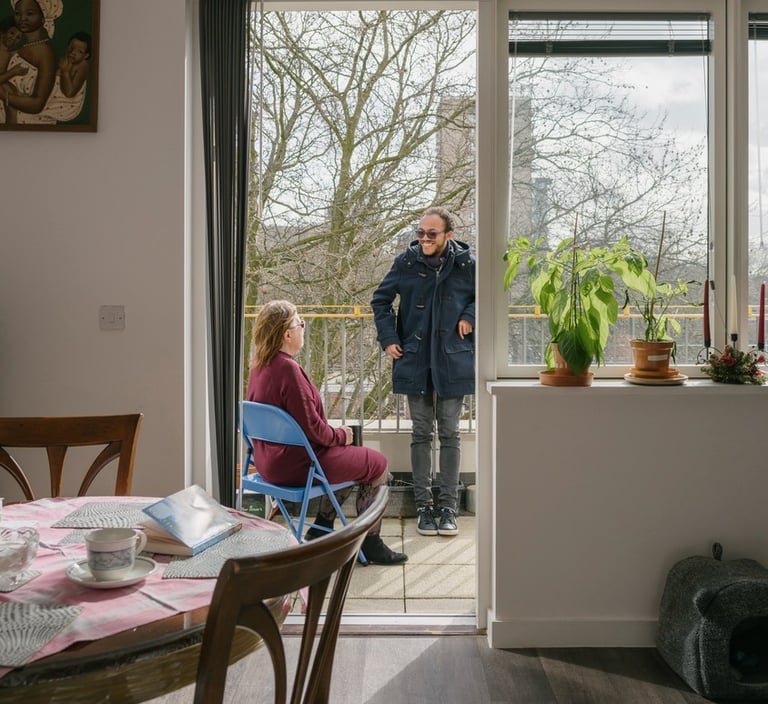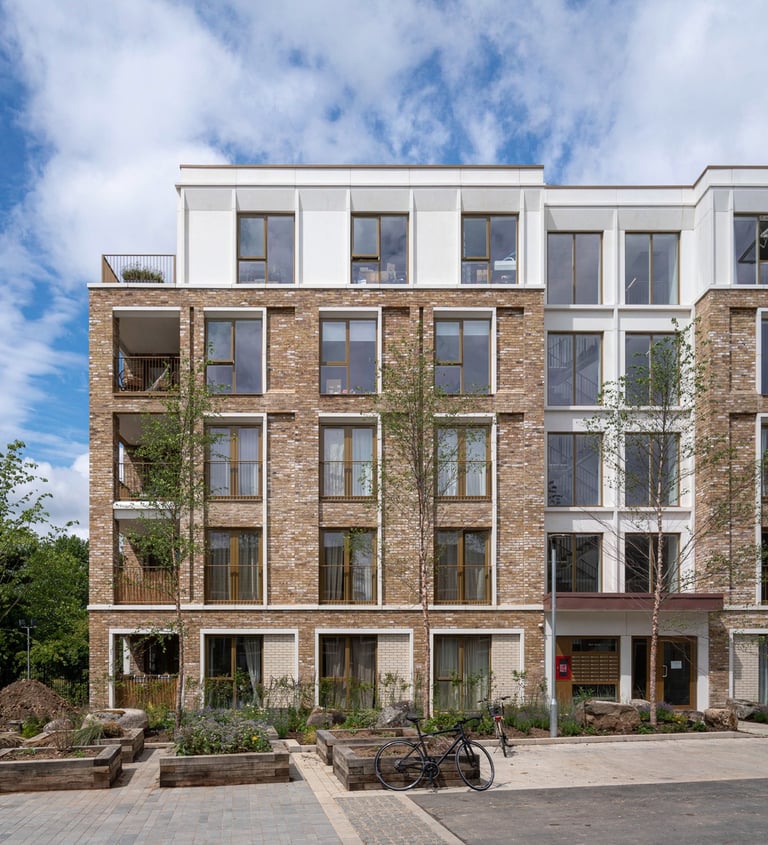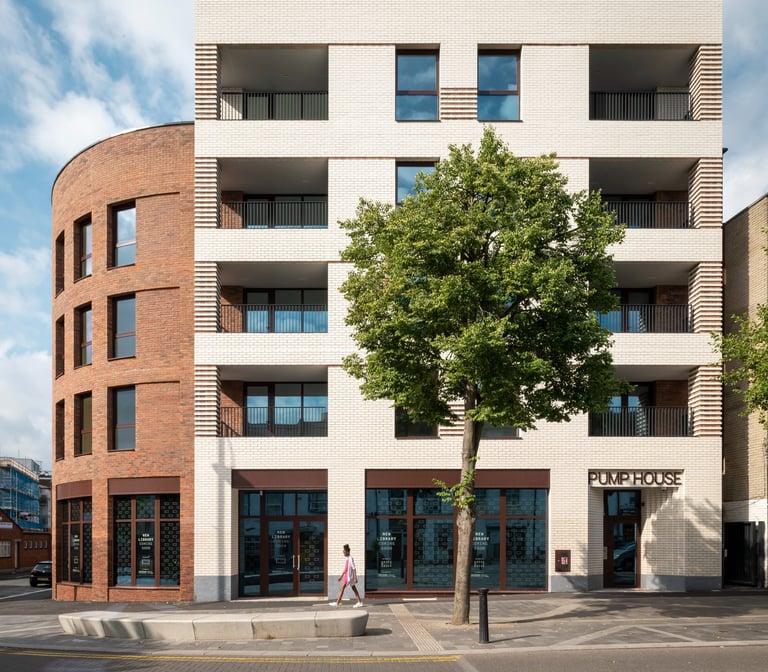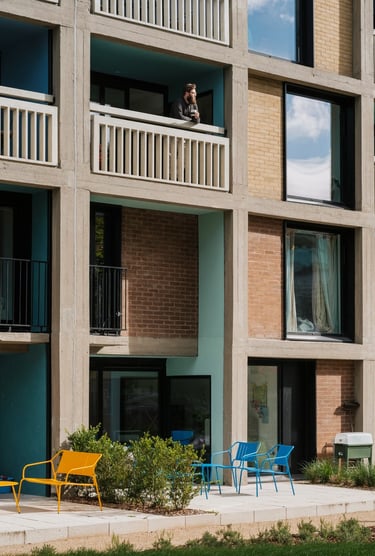
5 Affordable Housing Priorities for an affordable housing renaissance
A good home is the foundation everyone should enjoy, a human right that too many are living without. As architects we recognise the role we can play in helping to improve housing through design, planning and advocacy. We came together in the build up to the election and are now looking to engage with government to help them in their ambition to deliver the biggest boost to affordable housing in a generation. Please join our campaign.
Architects' Action for Affordable Housing
1. Prioritise Affordable Housing to deliver growth
OBJECTIVE: More quality affordable Housing built, delivering economic prosperity for all.
HOW: Identify the barriers to delivery of quality affordable housing
Examples of undelivered schemes from supporters with explanation of key factors hindering project progress (planning, procurement, decision making, viability etc).
Promoting measures to reduce waste in affordable housing design and delivery.
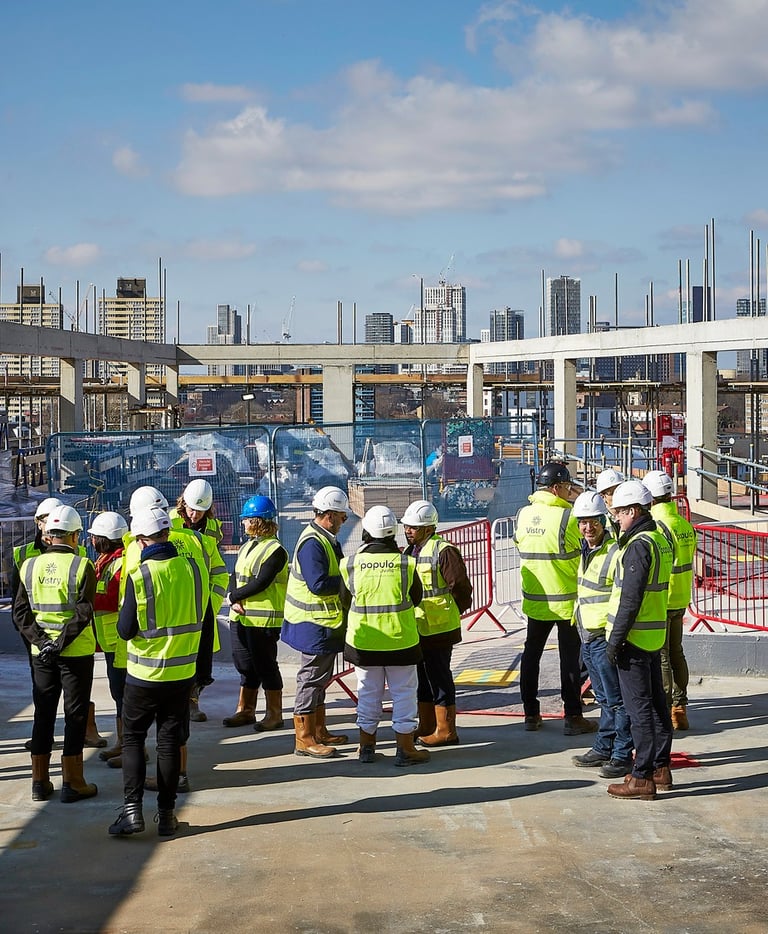

We have set out 5 affordable housing priorities where we are working to take positive action with our supporters:
2. Link Net Zero and Affordable Housing policies
OBJECTIVE: Deliver climate change commitments and reduce fuel poverty through low cost energy efficient affordable housing.
HOW: Identify forms of best practice that have delivered successful low and zero carbon housing
Examples of low carbon schemes from with explanation of key factors that ensured their success.
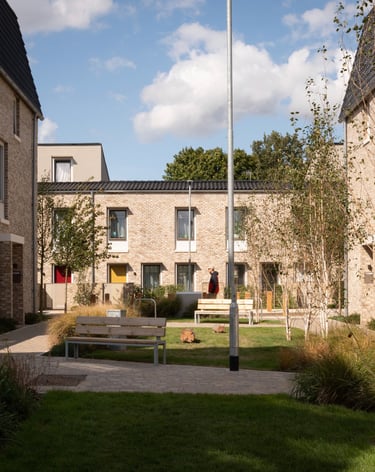

3. Build a resilient, fair and sustainable industry
OBJECTIVE: A modernised and skilled housing industry, capable of delivering 1.5m homes over 5 years and more beyond.
HOW: Help reduce waste in public procurement and processes in order to improve productivity, quality and efficiency
Create best practice templates for ITT, with fairer procurement rules that are in proportion to the opportunity.
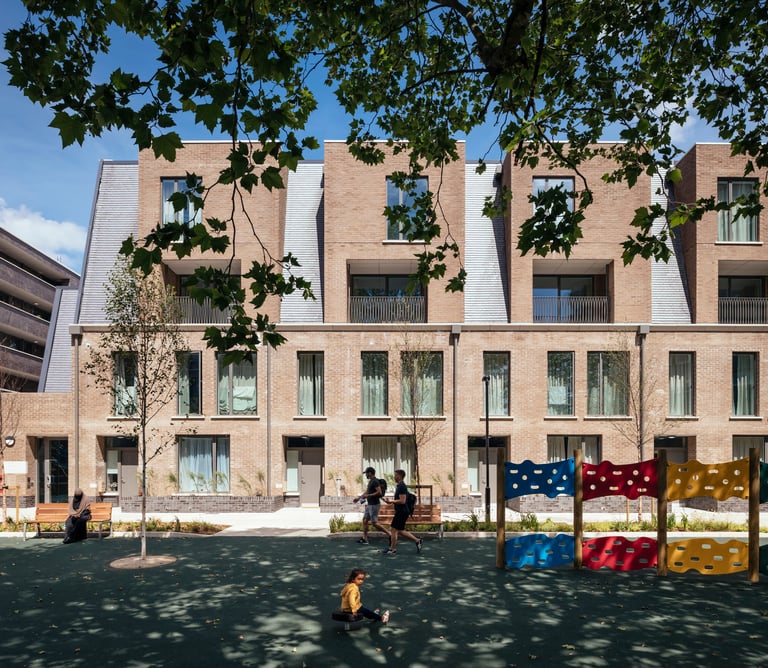

4. Create equity in housing supply
OBJECTIVE: Improving access to affordable homes where they are needed.
HOW: Champion inclusive place making that demonstrates a diversity of housing offer and quality social infrastructure
Case studies of successful masterplans and mixed- neighbourhoods.
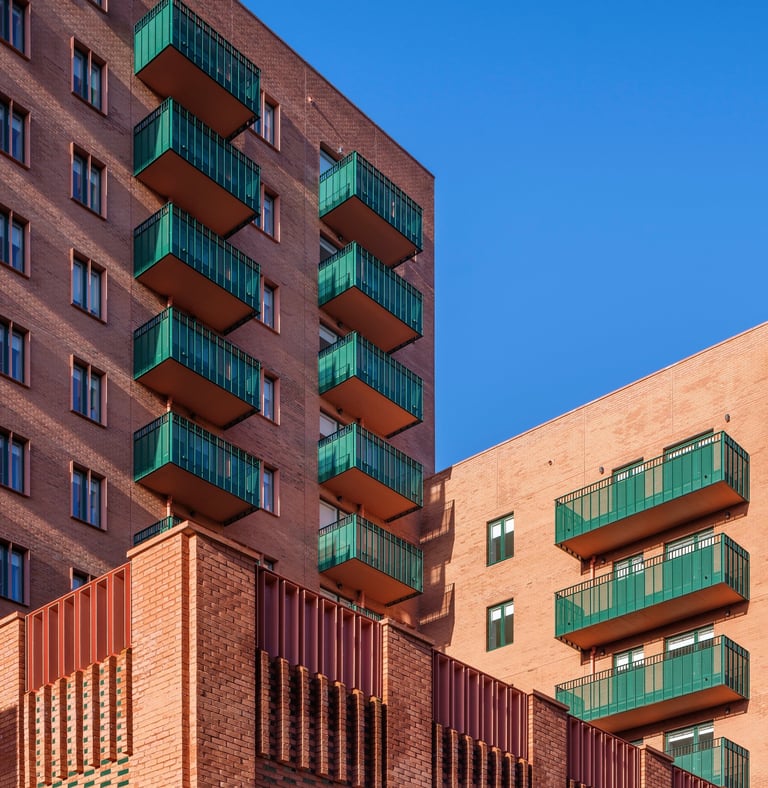

5. Empower diversity of housing delivery with a self-build and community housing drive
OBJECTIVE: More community focussed housing developments, more direct involvement of local communities, more affordable home ownership.
HOW: Promote architects involvement in grass roots supply of community housing and custom and self-build homes
Promoting collaboration between smaller developers, LDOs, step-by-step guide to enabling development.
